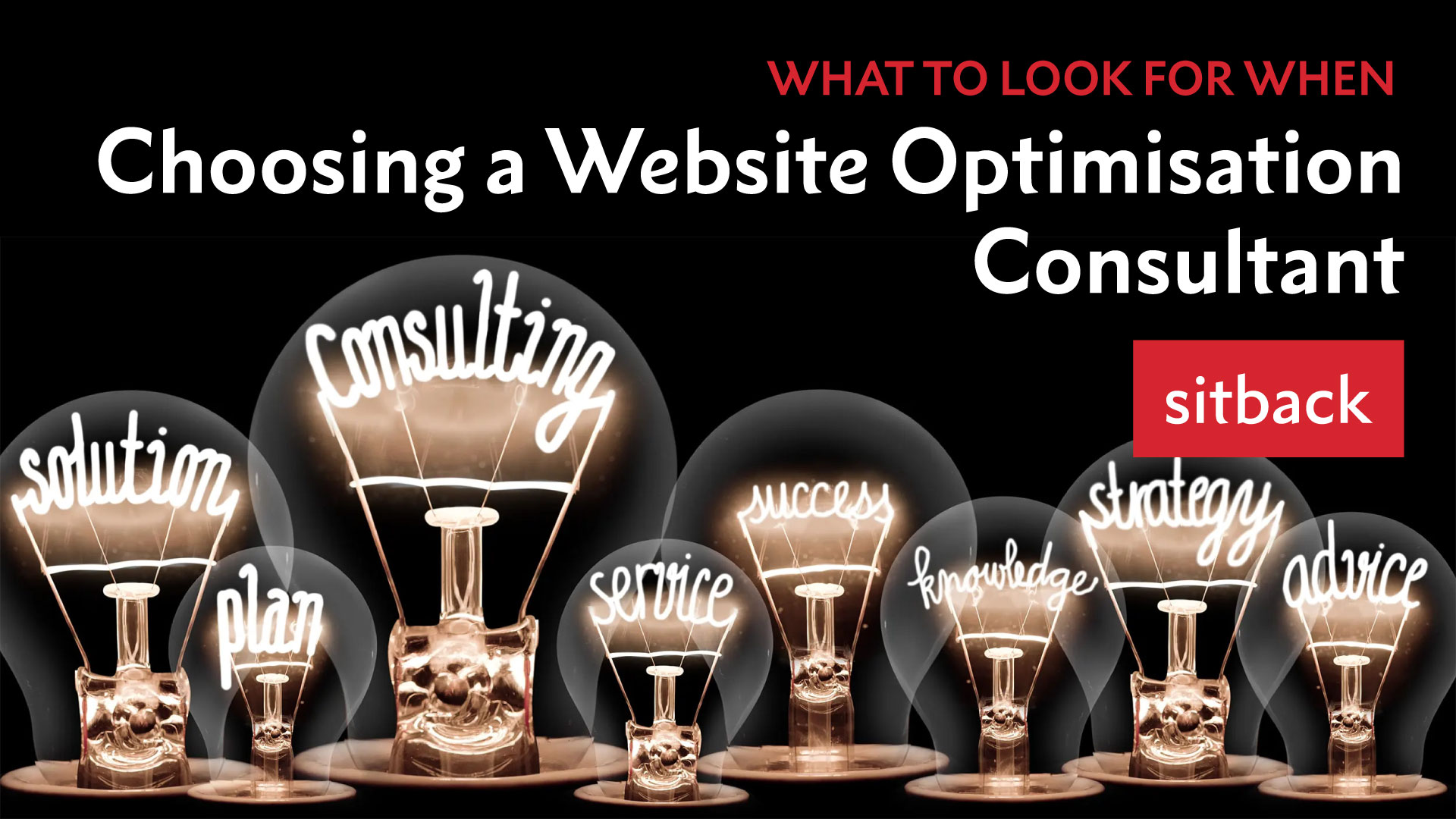What to look for when choosing a website optimisation consultant

No two website optimisation consultants are alike. Not only may they interpret your requirements differently and offer a range of different solutions and processes, the results they’re able to achieve for you will vary as well.
Want to choose the website optimisation consultant that’s right for you? Here are the questions you should be asking:
Do they really understand how to do UX well?
Lots of teams and consultants say they ‘do UX’, but that doesn’t necessarily mean they’re integrating it into their processes effectively – nor does it mean they’ll be able to get you the results you need.
A few important questions to ask here are:
- What qualifications have they completed?
- What experience and results can they show you?
- Does their development team understand UX as well as their UX team? This is important to ensure everything is technically feasible from a development perspective, and that it behaves as intended once executed.
- Do they understand the psychology of UX? E.g. from a research perspective, do they incorporate psychology research best practices in mitigating bias, or are they aware of visual psychology principles when designing solutions?
- Do they validate their design ideas? If so, how do they validate their ideas and designs (or do they just go with what ‘looks good’)?
- Do they have in place rigorous research practices? E.g. ensuring data saturation, achieving data triangulation, avoiding or minimising researcher bias, having a neutral observer in all research sessions, etc.
These and other questions will help you identify providers who both understand how to do UX well and how to carry it out effectively.
What is their process when it comes to website optimisation?
It’s important to determine whether or not a site optimisation consultant begins with comprehensive research – or if they attempt to jump straight into problem-solving. At Sitback, we firmly believe that you can’t solve a problem unless you have the required data. As we say, in order to innovate, we must first understand.
Any good website optimisation consultant, from a best practice perspective, will always perform background research to understand your existing issues before presenting the appropriate solutions and recommendations to you. Whether you’re planning a full site redesign or more simple landing page optimisation work, beginning with research is critical.
Do they follow design thinking frameworks?
“The design thinking ideology asserts that a hands-on, user-centric approach to problem-solving can lead to innovation, and innovation can lead to differentiation and competitive advantage. This hands-on, user-centric approach is defined by the design thinking process and comprises 6 distinct phases.” Nielsen Norman Group
Specifically, the six phases of design thinking include:
- Emphasise
- Define
- Ideate
- Prototype
- Test
- Implement
At Sitback, we utilise and encourage our clients to adopt the design thinking methodology, because we’ve found that it’s the most solid framework for helping us achieve good UX, as well as ensuring we’re solving for and designing for the right problems – whilst meeting our clients’ objectives successfully. We wouldn’t recommend proceeding with a consultant that doesn’t use this framework.
Do they understand your website’s objectives?
You can always make improvements to the UX design of a web page. But if the improvements made aren’t actually tied to your overall business goals and objectives or to the user’s needs and wants, all you’ll achieve is a nice refresh from a visual perspective. The changes you make may not help you improve your bottom line or reach the user goals that your customers have when coming to your website.
A great website optimisation consultant will be able to balance beautiful design, the needs of the end user and the overarching objectives of the business when developing an optimisation plan.
Have their methods been proven effective?
To ensure a consultant will be able to provide you with the results you need from your optimisation project, look at their past work for previous clients.
Take the time to read through their case studies and testimonials to get a feel for the type of results they’ve achieved in the past.
It’s also wise to note what types of websites, business and industries they’ve worked with to make sure they have a proven track record for similar businesses to yours.
An eCommerce website is very different to a banking website – a construction company’s website will function very differently to an insurance firm. Individual websites can require different knowledge of best practices, user behaviour and the appropriate business strategies to drive optimisation efforts.
If you’ve struggled to find the right website optimisation consultant in the past, get in touch with the Sitback team for more information or take a look at our case studies for more on the results our work has achieved for our clients.